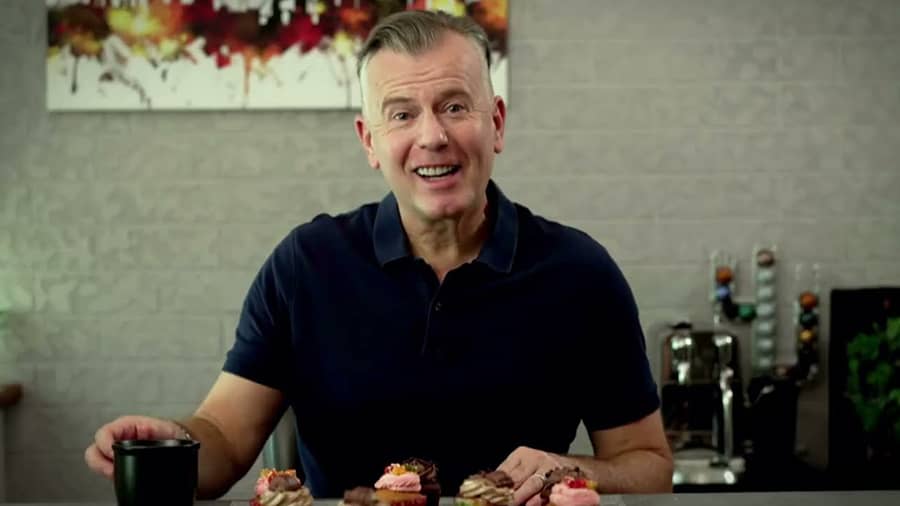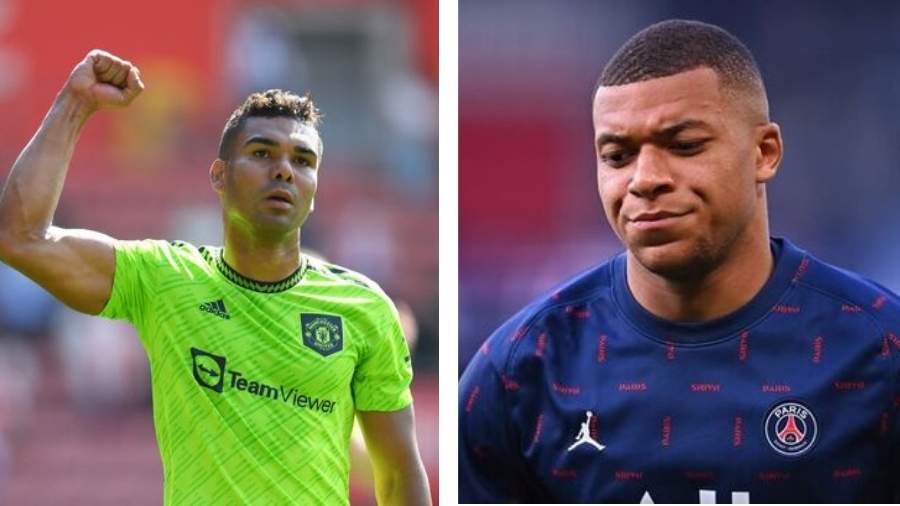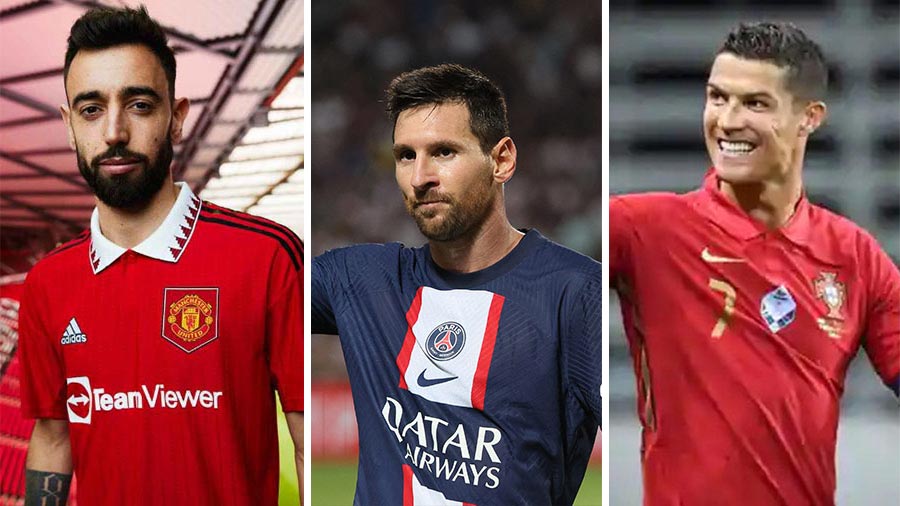What (or rather, who) connects Premier League action on Saturday afternoons, midweek nights of Champions League football, Formula One race weekends, Grand Slams and the Cricket World Cup? For a generation of sports lovers, the answer is simple: John Dykes.
Across media, shows and networks, Dykes has been a mainstay in sports broadcasting for the best part of this century. My Kolkata caught up with Dykes to get his thoughts on how the job of the sports anchor has changed over the years, how he handled a commentary crisis during the 2022 Champions League final, his impressions of Kolkata and more.
Edited excerpts from a Zoom conversation connecting a Kolkata afternoon with a Singapore evening follow.
Formula One and tennis most challenging to cover
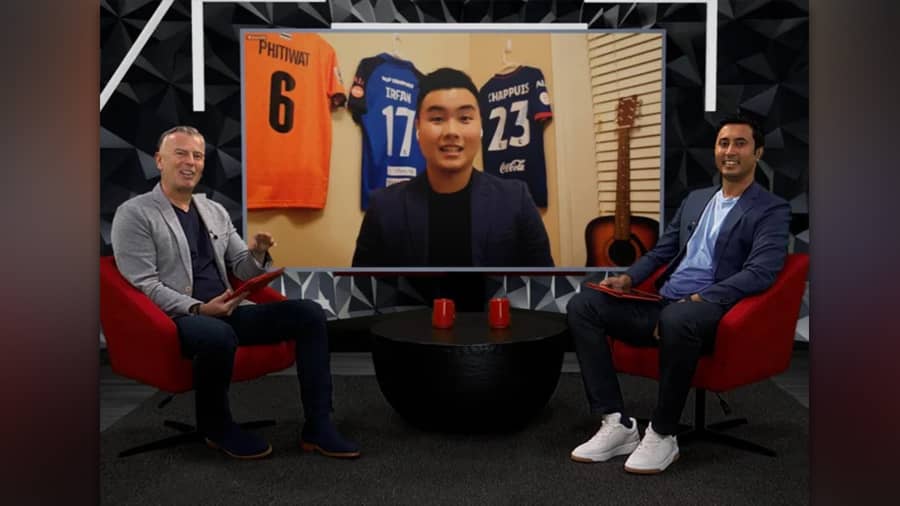
Few television anchors in the last two decades have covered as many sports as Dykes Sony Sports Network
My Kolkata: Across your career, you have covered a wide range of sports on television. Which have been the most challenging to cover for a TV audience and why?
John Dykes: I’d classify my areas of expertise as being football and cricket, followed by rugby, but I’ve worked across a lot of sports, as you said. As a journalist, I always prepare to the best of my ability, but there’s still that fear at the back of my head of having a gap in knowledge at a crucial time when covering a sport that I haven’t grown up watching the ins and outs of. It can be quite scary because you don’t want to be exposed on air. With Formula One, I found the coverage challenging at times, because I’m not a petrolhead and don’t really get into the tech side of things. So, whenever I was on air, I tried to focus on my strengths, which were the human interest stories and the personalities of the drivers, rather than sticking my neck out on the technical issues. It was a similar situation with tennis. It’s a sport I love to watch, but one in which I may have gaps in my knowledge. As a result, I’d try to lean on the experts I was working with, especially the great Vijay Amritraj.
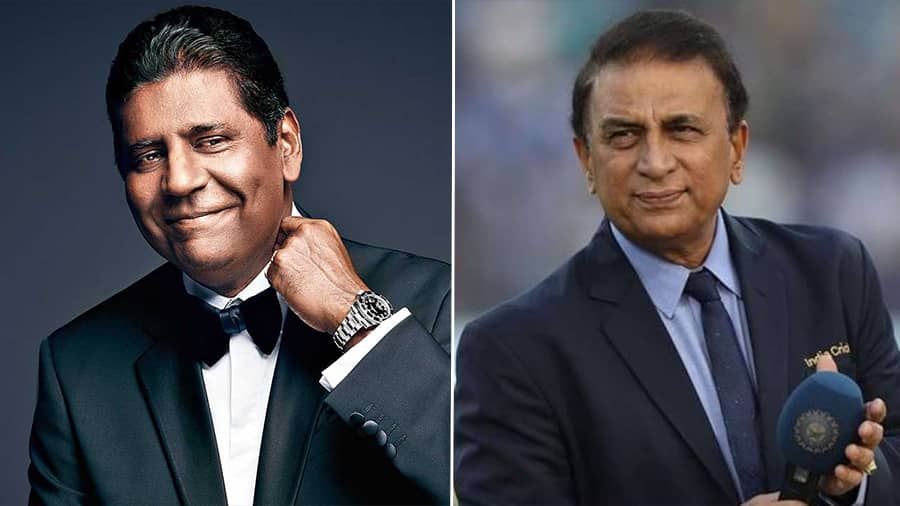
Vijay Amritraj and Sunil Gavaskar are among the sporting icons Dykes has worked with over the years TT archives
In all the tournaments and championships that you have covered over the years, which are the ones closest to your heart?
I’d say the first UEFA Champions League final that I covered on site, when Real Madrid beat Valencia in Paris (in 2000). I was working with guys I was really fond of, like the commentator Martin Tyler. Gerry Armstrong was my pundit. I had spoken to Steve McManaman a day before the game, and it was special to see him score in the final (for Real).
Another tournament close to my heart would be the ICC Cricket World Cup in 1999. I grew up as someone who was mad about cricket and loved everything about it. Even though I’m British, I had started my career in Hong Kong and Singapore. To suddenly find myself in my home country for the entire duration of the World Cup working alongside legends like Sunil Gavaskar, Geoffrey Boycott and Tony Greig was mind-blowing. The feedback, long before the days of social media, was very positive and we could sense that a buzz had been created.
‘I was brought up to not have an opinion myself, but to elicit one from an expert’
With the rapid changes in television technology, would the mantra for succeeding as a sports anchor in 2002 be very different from the one today?
A lot of people fall into the trap of thinking that things have changed hugely for an anchor. A lot of people that do the role that I do tend to be overtly opinionated, even biased, these days. They are often encouraged by their organisations to be that way, which is a product of the rise of 24x7 news channels as well as social media. I was brought up to not have an opinion myself, but to elicit one from an expert who had played the game. There’s been a democratisation in that regard, as a lot more people are offered a chance to have their say these days. At the same time, media organisations today are not just broadcasters. They are social media entities as well as digital platforms. As an anchor, you feel that there’s pressure on you to deliver content that would be relevant for other parts of the organisation. Which is why you might find anchors being more provocative or pundits making it clear which clubs they support. That way you can be more polarising.
I don’t necessarily think that’s a great thing, but it shouldn’t take away from what you still need to be a good anchor — neutrality, a good journalistic base and knowing that the most important thing about a broadcast isn’t you. Of course, modern anchors also have to be more socially media savvy — which I am, I absolutely love social media! We also have to engage more with fans and offer insights into statistical and predictive data. In that sense, it’s a much broader role for anchors now.
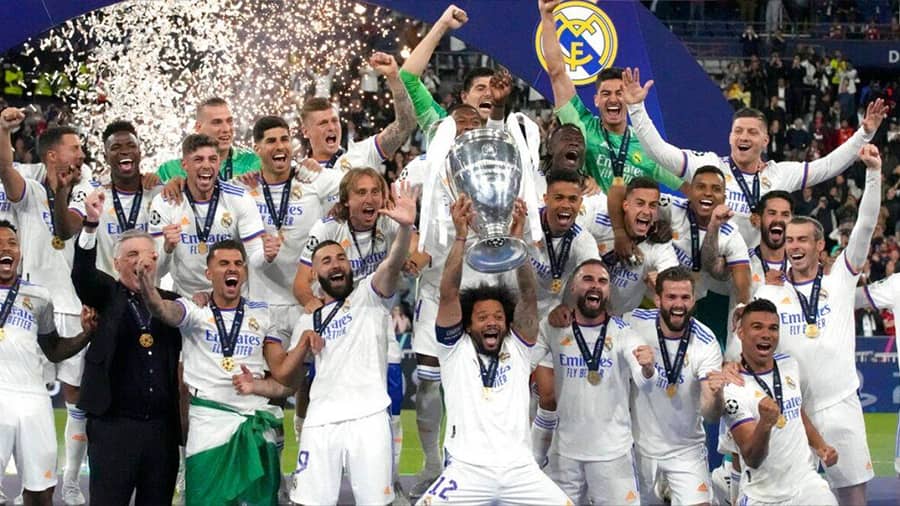
Dykes stepped in as a substitute commentator during the 2022 Champions League final won by Real Madrid against Liverpool UEFA
Tell us about this year’s UEFA Champions League final in Paris when you had to fill in as commentator midway through the game for audiences in the Indian subcontinent. How did you prepare yourself in that short window?
First things first, it was an unfortunate set of circumstances and I felt very sorry for the commentator (who had lost his voice).... There was no preparation that I had undertaken. I had to immediately leave the studio and run to a voice booth — and there weren’t many of those available as the broadcast of Roland Garros was also going on simultaneously in multiple languages. Sony had to get everything ready very quickly and they did a great job of it.
As a perfectionist, to go in there literally with just a team sheet and nothing else was scary, but once things got rolling, my professionalism kicked in. Massive props to Terry Phelan (Dykes’s co-commentator) who, without missing a beat, said: “I’ll jump in and help”. We did the best we could, tried to make it as chatty and engaging as possible, since we didn’t have all the stats at hand. The feedback we got was very strong. I think people recognised that we stepped in and delivered something that was better than what would’ve happened otherwise.
Manchester City to win UCL due to the Erling Haaland factor
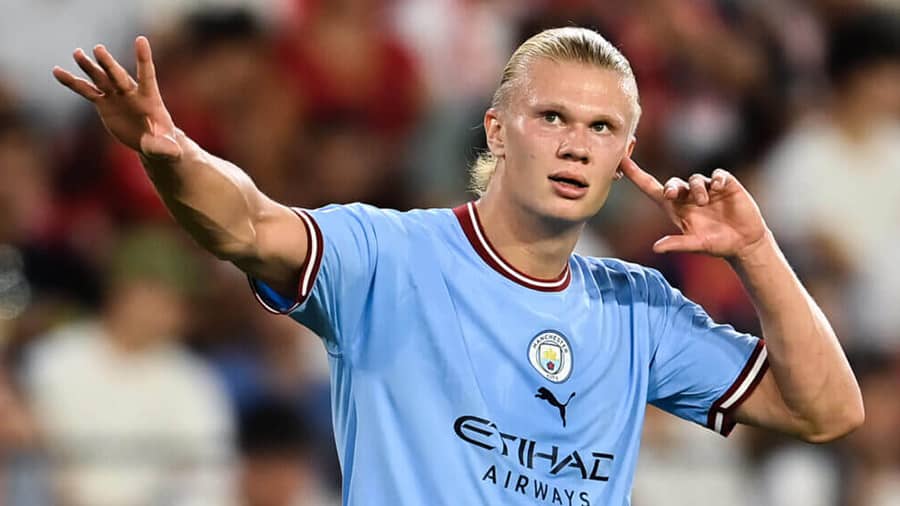
Dykes believes that the presence of Erling Haaland makes Manchester City favourites for the UCL crown UEFA
Who would be your pick to win the Champions League this season?
Club Brugge… I’m joking! The thing about the Champions League is that it’s invariably the squads with the most depth that go the deepest. The condensed format means that we can always see one or two big clubs leaving early, but once the FIFA World Cup gets over (in December) and we return to the knockouts, the favourites will be the likes of Liverpool, Manchester City, Barcelona, Real Madrid, Bayern Munich and Paris Saint-Germain. If I had to pick one, I’d go for City. It’s freakish how they didn’t get through to the final last season. In sports, when you consistently come close and fail, you eventually get it right. Plus, there’s the (Erling) Haaland factor!
Name the one thing you love the most and the one thing you hate the most about working on live television.
There’s no finer feeling than seeing something happen live and finding the right words, phrases and questions to enhance the viewer’s experience. That’s the essence of great live television, when the audience has not only watched something, but also heard it contextualised, summed up and delivered to them comprehensively. The thing I don’t like or find the hardest is when live action breaks down and we just have to fill the time.
Whenever I think of Kolkata, I think of football and the Salt Lake Stadium
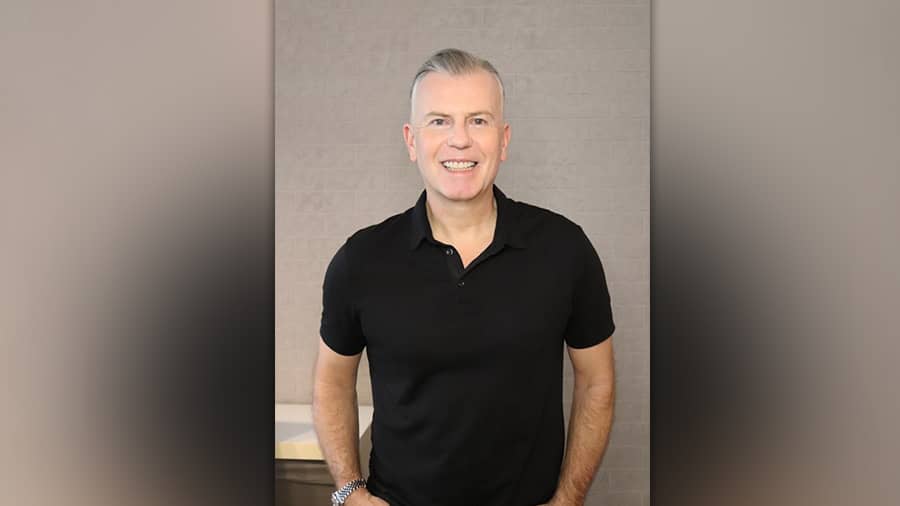
Dykes is glad that football is beginning to grow across India Sony Sports Network
For your fans in India, what have you made of your trips here? What struck you the most when you were in Kolkata?
I love India and its sports culture. I love the fact that sports is something that’s in everyone’s hearts across the country. It’s obsessive and passionate, and I love that. The colour and the vibrance of everyday life also stands out for me. There’s so much flavour and opinion and noise and spice that I feel energised whenever I’m in India. As for Kolkata, whenever I think of the city, I think of football and the Salt Lake Stadium. I really appreciate how Kolkata was a traditional hotbed of football along with Goa, but I’m also glad that football is growing much more around the country now.
‘The attitude, the arrogance, the run-up to the crease — I loved everything about Michael Holding’
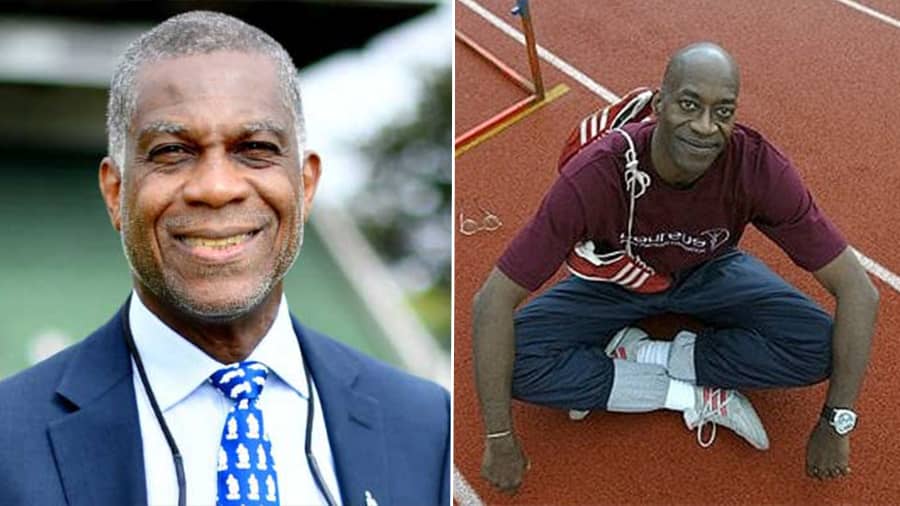
Michael Holding and Edwin Moses were two of Dykes’s heroes growing up ICC; IOC
Lastly, your favourite pundit to work with and your favourite athlete to cover in all these years?
Pundits are booked by producers, not by me. So, it’s always difficult to answer this and to judge pundits in isolation. But I love the fact that my time in the studio allowed me to sit next to someone like the great Sir Bobby Robson or people like Ian Rush and Bryan Robson, guys I grew up idolising as footballers. In terms of pure punditry, I’ve always admired people who come in armed with good knowledge and insights, but who are also good team players. In that respect, I loved working with Andy Townsend.
As for my favourite athlete, I loved watching Edwin Moses and how he eased his way through hurdles. I was a big fan of running and watched a lot of track events growing up. That love for athleticism also translated into an admiration for fast bowlers, which is why I loved watching Michael Holding. He didn’t have a very long career, but when he was there, he was just so classy in everything he did. The attitude, the arrogance, the run-up to the crease — I loved everything about him. To interview him and then work with him was one of the highlights of my career.
Watch The Top Corner with John Dykes show on SONY TEN 2 channels every Thursday at 8:00 pm IST
